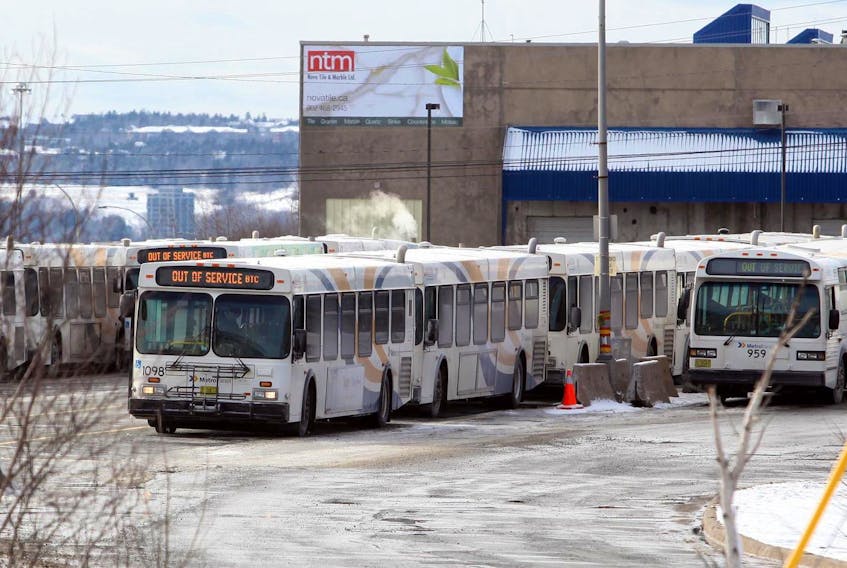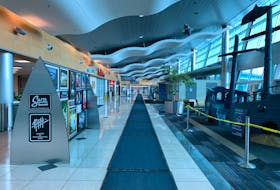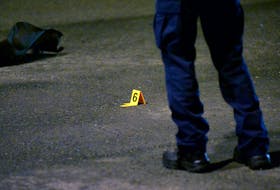Bus maintenance is running far behind schedule at one of Halifax Transit’s garages.
That was part of the findings of Evangeline Colman-Saad, municipal auditor general, in a bus maintenance audit delivered to the finance committee of regional council Wednesday.
“The Burnside garage is quite a bit later than Ragged Lake so that’s another area management can look at,” Colman-Saad said after the presentation.
The audit determined that 66 per cent of the regular maintenance work performed on the transit bus fleet at Burnside in 2017-18 was overdue by at least 1,000 kilometres and 41 per cent of the work was at least 2,000 kilometres overdue. By contrast, the Ragged Lake facility was overdue by at least 1,000 kilometres only two per cent of the time. The Ragged Lake garage was overdue by at least 1,000 kilometres a whopping 87 per cent of the time in 2016-17, while Burnside was at 75 per cent.
Dave Reage, director of Halifax Transit, said he was at a loss to explain the difference in the two garages.
“Our next step is to go away, work with the team and determine what is causing that difference and then figure out a plan to address it,” Reage said.
Transit’s preventive maintenance program requires its more than 330 conventional buses to be inspected every 10,000 kilometres.
“Ragged Lake schedules a little different than Burnside,” Colman-Saad said. “They schedule in advance, in anticipation that maintenance is coming due. Burnside schedules when maintainence is due. They are automatically going to be late. It’s a 10,000 kilometre maintenance. You wouldn’t expect that by 10,001 kilometres, maintenance is going to be done but you would expect that they would have a range that they would consider reasonable and that that’s their goal to fall within that range.”
The two-building, $28-million Ragged Lake facility was completed and opened in August 2010 and the Burnside garage has been in operation since 1981. A consultant’s report from 2017 noted that the Ragged Lake garage was working at capacity for bus maintenance and Burnside was over capacity. Still, no one was attributing the age differential or the capacity levels to the differences in performance.
“What we’re looking at, it’s just like your car, you are never going to bring it into the garage bang on the date,” Reage said of buses. “There is an acceptable range. We need to figure out what is the acceptable range on either side of that (maintenance) number.”
Reage said the maintenance delays have not had any impact on bus manufacturers’ warranties.
“What it does is highlight for us that we do need to be consistent between garages.”
He said Transit is looking at all options to improve maintenance records, including building a third garage, expanding existing facilities and changing the interior garage layouts.
Colman-Saad’s audit included 10 recommendations for Halifax Transit, all of which management have agreed to, she said.
The auditor had several inventory issues. She recommended that Halifax Transit determine the value of small equipment and assess whether a process to track those items is worthwhile. Colman-Saad recommended the implementation of a process to investigate significant inventory count discrepancies and that supervisors periodically review inventory adjustments to confirm they are appropriate.
“There were a lot of people who had access to the storerooms that didn’t need it for their jobs,” Colman-Saad said. “Some people had access to (electronically) change inventory quantities in the inventory system that they didn’t need for their jobs. My understanding is that some of those access issues have been addressed and some have not.”
Colman-Saad said she could not speak to the possibility that any inventory is missing, how much inventory that could be or what it’s value might be.
Colman-Saad said the first audit of the $115-million operation was routine and not borne out of any complaints lodged.
“Overall, I would say it’s a relatively positive report,” with some room for improvement, she said.
Bus maintenance is running far behind schedule at one of Halifax Transit’s garages.
That was part of the findings of Evangeline Colman-Saad, municipal auditor general, in a bus maintenance audit delivered to the finance committee of regional council Wednesday.
“The Burnside garage is quite a bit later than Ragged Lake so that’s another area management can look at,” Colman-Saad said after the presentation.
The audit determined that 66 per cent of the regular maintenance work performed on the transit bus fleet at Burnside in 2017-18 was overdue by at least 1,000 kilometres and 41 per cent of the work was at least 2,000 kilometres overdue. By contrast, the Ragged Lake facility was overdue by at least 1,000 kilometres only two per cent of the time. The Ragged Lake garage was overdue by at least 1,000 kilometres a whopping 87 per cent of the time in 2016-17, while Burnside was at 75 per cent.
Dave Reage, director of Halifax Transit, said he was at a loss to explain the difference in the two garages.
“Our next step is to go away, work with the team and determine what is causing that difference and then figure out a plan to address it,” Reage said.
Transit’s preventive maintenance program requires its more than 330 conventional buses to be inspected every 10,000 kilometres.
“Ragged Lake schedules a little different than Burnside,” Colman-Saad said. “They schedule in advance, in anticipation that maintenance is coming due. Burnside schedules when maintainence is due. They are automatically going to be late. It’s a 10,000 kilometre maintenance. You wouldn’t expect that by 10,001 kilometres, maintenance is going to be done but you would expect that they would have a range that they would consider reasonable and that that’s their goal to fall within that range.”
The two-building, $28-million Ragged Lake facility was completed and opened in August 2010 and the Burnside garage has been in operation since 1981. A consultant’s report from 2017 noted that the Ragged Lake garage was working at capacity for bus maintenance and Burnside was over capacity. Still, no one was attributing the age differential or the capacity levels to the differences in performance.
“What we’re looking at, it’s just like your car, you are never going to bring it into the garage bang on the date,” Reage said of buses. “There is an acceptable range. We need to figure out what is the acceptable range on either side of that (maintenance) number.”
Reage said the maintenance delays have not had any impact on bus manufacturers’ warranties.
“What it does is highlight for us that we do need to be consistent between garages.”
He said Transit is looking at all options to improve maintenance records, including building a third garage, expanding existing facilities and changing the interior garage layouts.
Colman-Saad’s audit included 10 recommendations for Halifax Transit, all of which management have agreed to, she said.
The auditor had several inventory issues. She recommended that Halifax Transit determine the value of small equipment and assess whether a process to track those items is worthwhile. Colman-Saad recommended the implementation of a process to investigate significant inventory count discrepancies and that supervisors periodically review inventory adjustments to confirm they are appropriate.
“There were a lot of people who had access to the storerooms that didn’t need it for their jobs,” Colman-Saad said. “Some people had access to (electronically) change inventory quantities in the inventory system that they didn’t need for their jobs. My understanding is that some of those access issues have been addressed and some have not.”
Colman-Saad said she could not speak to the possibility that any inventory is missing, how much inventory that could be or what it’s value might be.
Colman-Saad said the first audit of the $115-million operation was routine and not borne out of any complaints lodged.
“Overall, I would say it’s a relatively positive report,” with some room for improvement, she said.









